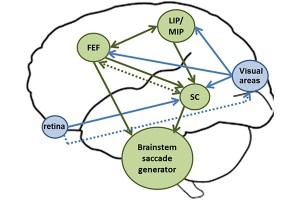Large-scale analysis links glucose metabolism proteins in the brain to Alzheimer’s disease biology
In the largest study to date of proteins related to Alzheimer’s disease, a team of researchers has identified disease-specific proteins and biological processes that could be developed into both new treatment targets and fluid biomarkers.
In the largest study to date of proteins related to Alzheimer’s disease, a team of researchers has identified disease-specific proteins and biological processes that could be developed into both new treatment targets and fluid biomarkers. The findings suggest that sets of proteins that regulate glucose metabolism, together with proteins related to a protective role of astrocytes and microglia — the brain’s support cells — are strongly associated with Alzheimer’s pathology and cognitive impairment.
The study, part of the Accelerating Medicines Partnership for Alzheimer’s Disease, involved measuring the levels and analyzing the expression patterns of more than 3,000 proteins in a large number of brain and cerebrospinal fluid samples collected at multiple research centers across the United States. This research was funded by the National Institutes of Health’s National Institute on Aging (NIA) and published April 13 in Nature Medicine.
Whole text here





Related Posts